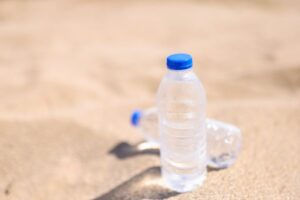How To Describe Assessing Water Quality As A Competence?
Assessing water quality is a crucial competence for individuals and organizations who rely on water for various purposes. Water quality assessments involve the evaluation of water samples to determine whether it meets certain standards for human consumption, agriculture, industrial use, and environmental purposes. The following is a guide on how to describe assessing water quality as a competence.
(Looking for “High-Quality Water Filters“? Contact us Today!)

Firstly, an individual with the competence to assess water quality should be able to identify and describe the physical, chemical, and biological properties of water. The physical properties of water include color, taste, odor, temperature, and turbidity. Chemical properties include pH, dissolved oxygen, conductivity, and total dissolved solids. Biological properties include the presence of bacteria, viruses, and other microorganisms.
Secondly, the individual should be able to understand the various factors that affect water quality. These factors include natural phenomena such as weather and geology, as well as human activities such as land use, industrial practices, and waste disposal. Understanding the sources of contamination is crucial in identifying the appropriate measures to take to address water quality issues.
Thirdly, an individual with the competence to assess water quality should be familiar with the standards and guidelines set by regulatory agencies for water quality. For example, in the United States, the Environmental Protection Agency (EPA) has set standards for drinking water quality, while the Department of Agriculture (USDA) has set standards for water quality in agriculture.
Fourthly, the individual should be able to perform basic laboratory tests to evaluate water quality. These tests include pH tests, turbidity tests, and total dissolved solids tests. The individual should also be familiar with more advanced laboratory tests such as microbial analysis and chemical analysis.
Fifthly, the individual should be able to analyze and interpret the results of water quality tests. This involves comparing the test results to the regulatory standards and guidelines to determine whether the water is safe for its intended use. The individual should also be able to identify the sources of contamination and recommend appropriate measures to address the issues.
Lastly, an individual with the competence to assess water quality should be able to communicate the results of water quality tests effectively. This involves preparing reports and presenting the results in a manner that is understandable to various stakeholders, including regulatory agencies, policymakers, and the public.
In conclusion, assessing water quality is a crucial competence that requires knowledge and skills in identifying and describing the physical, chemical, and biological properties of water, understanding the factors that affect water quality, knowledge of standards and guidelines, laboratory testing, data analysis and interpretation, and effective communication of results. Individuals and organizations that possess this competence are better equipped to ensure that water resources are safe for various uses and protect public health and the environment.

